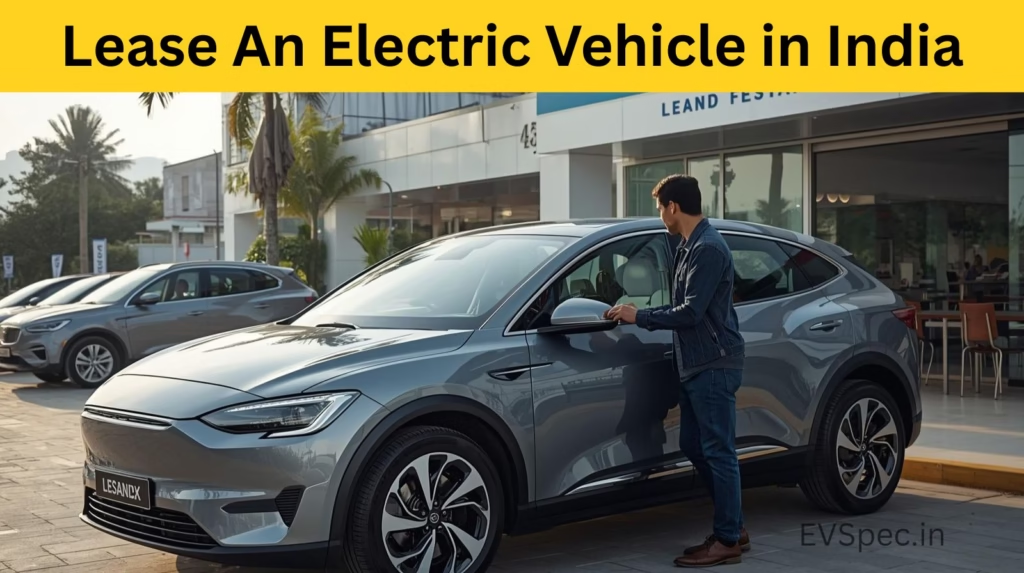
How to Lease an Electric Vehicle in India: Process, Benefits, and Drawbacks
Leasing an electric vehicle (EV) is becoming an increasingly popular option for Indian customers who want to enjoy the benefits of electric mobility without the long-term commitment of owning a car. This guide explains how to lease an electric vehicle in India, detailing the step-by-step process, the benefits you can expect, and potential drawbacks to consider before signing a lease agreement.
What Is EV Leasing and Why Consider It?
Leasing means renting an electric vehicle for a predetermined period (usually 2-4 years) by paying monthly installments instead of buying it outright. It offers flexibility and lowers upfront costs, making it ideal for those wanting to experience modern EVs without a hefty initial investment.
How to Lease an Electric Vehicle in India: Step-by-Step Process
1. Research Lease Providers and EV Models
Start by identifying leasing companies or banks that offer EV lease programs in India. Many manufacturers, including Tata Motors, MG, and Hyundai, have tie-ups with financing firms offering EV leases. Compare models like Tata Nexon EV, MG ZS EV, or Hyundai Kona EV based on lease availability.
2. Check Eligibility Criteria
Typically, to lease an Electric Vehicle, you will need:
- Valid government-issued ID and address proof
- Income proof (salary slips or bank statements)
- Good credit score or credit history
- Proof of residence
Some providers may have minimum income requirements or specific employee tie-ups.
3. Choose Lease Terms and Vehicle Variant
Discuss and finalize:
- Lease tenure (usually 24-48 months)
- Allowed annual kilometers (usually 12,000 – 24,000 km/year)
- Down payment amount (varies from 10% to 30%)
- Monthly lease installment
Choose the variant and color based on your budget and preferences.
4. Application and Background Check
Submit documents to the lease provider. They will perform a credit and background check, verify your income and identity, then issue an approval if criteria are met.
5. Sign the Lease Agreement
Review the lease contract carefully, focusing on:
- Total lease cost including down payment and monthly fees
- Conditions regarding excess kilometers
- Maintenance responsibility and costs
- Terms at lease-end (buyout option, return policies)
- Insurance coverage requirements
Sign once you are satisfied with the terms.
6. Take Delivery and Drive
After payment of the down payment and first installment, take delivery of your EV. Monthly payments start as per the lease schedule.
7. End of Lease Options
At lease maturity:
- Return the vehicle without further obligation (barring damages/excess km)
- Buy the vehicle at a predetermined residual value
- Extend the lease or upgrade to a newer EV model
Benefits of Leasing an EV in India
- Low Upfront Cost: Avoid paying the full vehicle price upfront, easing cash flow.
- Access to Newer Models: Upgrade your EV every few years to enjoy latest tech.
- Lower Maintenance Hassles: Lease usually includes warranty coverage; some plans cover servicing.
- Tax Benefits: Businesses leasing EVs can avail depreciation and tax savings.
- No Resale Worries: After lease ends, simply return the vehicle without resale hassles.
- Flexible Terms: Lease terms tailored to customer needs with kilometer limits and tenure options.
Drawbacks and Considerations
- Total Cost May be Higher: Leasing sometimes costs more over the long term than outright purchase.
- Kilometer Limits: Excess mileage attracts additional charges increasing overall cost.
- No Ownership Until End: You don’t own the car during the lease; modifications are usually restricted.
- Limited Customization: Personalizing the EV is restricted under most lease agreements.
- Early Termination Fees: Ending lease early may lead to penalties or loss of deposits.
Tips for a Successful EV Lease
- Compare multiple leasing offers for best interest rates and benefits.
- Negotiate down payment and monthly installments for your budget.
- Keep a close eye on kilometer usage and maintain the EV well.
- Understand lease-end options before signing.
- Check what insurance coverage is included or required.
Frequently Asked Questions (FAQs)
Q1: Can I lease an electric car as an individual in India?
Yes, individuals and businesses can lease EVs subject to eligibility criteria set by lessors.
Q2: Are there any subsidies or incentives available for leased EVs?
Government subsidies apply at the point of sale; leasing companies usually pass on benefits in monthly costs or down payment.
Q3: Can I buy the EV before my lease ends?
Most leases allow buyout options at pre-agreed residual prices.
Q4: Is insurance included in EV lease agreements?
Some packages include insurance; others require you to purchase separately.
Q5: How does leasing affect maintenance costs?
Leased EVs generally remain under warranty with some maintenance covered, reducing out-of-pocket costs.
Conclusion
Leasing an electric vehicle in India offers a flexible, cost-effective way to enter the EV ecosystem without the high upfront investment of buying. Understanding the leasing process and its benefits will help you make an informed decision. Whether upgrading frequently or hoping to avoid ownership hassles, leasing can be a smart choice in India’s evolving electric mobility landscape.
Meta Description:
Learn how to lease an electric vehicle in India with this step-by-step guide. Discover the leasing process, benefits, drawbacks, and tips to make the most of your EV lease in 2025.